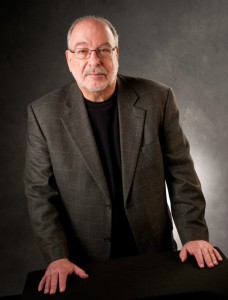Events

- This event has passed.
Ken Waltzer Seminar: A Holocaust Micro-History
May 22, 2014 @ 12:00 pm - 2:00 pm | Humanities 1, Room 202
 Professor Kenneth Waltzer is currently director of the Jewish studies program at Michigan State University. His interests cover American social and political history, including urban, labor, and minority history, immigration and social relations in the United States and elsewhere, and modern Jewish history, including the study of anti-Semitism and of the Holocaust. His major current project is a book on The Rescue of Children and Youths at Buchenwald. His research on the Buchenwald concentration camp has focused on the rescue of children and youths inside the camp and has included some notable findings.
Professor Kenneth Waltzer is currently director of the Jewish studies program at Michigan State University. His interests cover American social and political history, including urban, labor, and minority history, immigration and social relations in the United States and elsewhere, and modern Jewish history, including the study of anti-Semitism and of the Holocaust. His major current project is a book on The Rescue of Children and Youths at Buchenwald. His research on the Buchenwald concentration camp has focused on the rescue of children and youths inside the camp and has included some notable findings.
Moving Together, Moving Alone: The Story of Boys on a Transport from Auschwitz to Buchenwald
On January 17, 1945, a large group of about ten thousand predominantly Jewish prisoners were evacuated from Auschwitz-Buna (Monowitz) and Birkenau and taken on a death march to the west. A few days later, approximately four thousand survivors of this ordeal reached Gleiwitz, a rail head and the site of several Nazi satellite camps, where the Nazis loaded them onto open coal cars and transported them to Buchenwald, a huge concentration camp near Weimar in Thuringia. The weather was so cold that some prisoners sat on frozen dead bodies as benches. According to Nazi records, the transport arrived on January 26, 1945, with 3,784 prisoners. Of this number, 304 youths, 16 years old or under, comprised about 8% of the human cargo. One of them, Lazar (Eliezer) Wiesel, later wrote about the ordeal in a remarkable memoir, Night, which is now known all over the world.
These were mostly Slovak-, Hungarian-, and Rumanian-Jewish boys who had survived terrible family losses on entering Birkenau in late May 1944 and were in Buna under atrocious conditions. Then, eight months later they were in Buchenwald, where many were relocated to the children’s barrack, Kinderblock 66. In this group, there were surprisingly numerous social clusters – boys with their fathers like Elie Wiesel, boys with other boys, especially brothers or cousins, and boys with relatives or friends often from the same towns. Many were acting out deep commitments, they say in their testimonies, to stay together and help one another under all pressures. But others were alone.
A large literature stresses that life in the Nazi camps approximated a war of all against all: social relations among prisoners were egoistic and pathogenic. This seminar seeks to test this hypothesis. Using the techniques of micro-history, it asks in what ways these youths at Buna and Buchenwald were moving together and also moving alone during their ordeal. It shows how by focusing in a detailed way on a distinctive group within prisoner society, we can study the remarkable and diverse forms of solidarity that continued to co-exist in prisoner society alongside separateness and aloneness among these tormented young people. In this case, we can also discover the fates of nearly all boys on the transport – those like Wiesel who were in block 66, those who were not, and those who were sent out of Buchenwald to the killing satellites.
Ken Waltzer will also be at the film screening of Kinderblock 66: Return to Buchenwald shown at UCSC on May 22 @ 6pm in College 8, Room 240.
These events are free and open to the public.
Sponsored by: UCSC Center for Jewish Studies and Neufeld-Levin Endowed Chair in Holocaust Studies.
